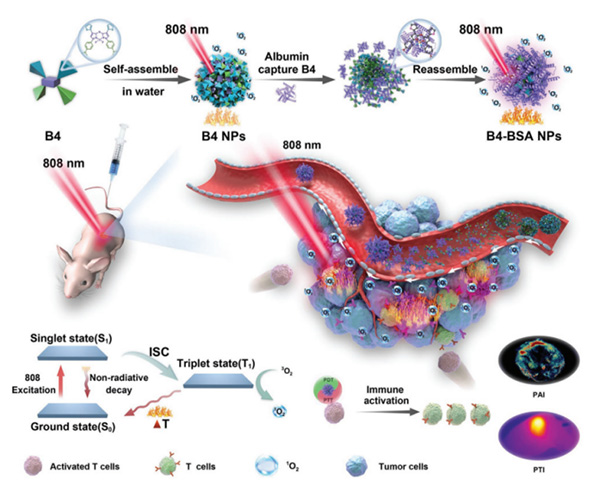Optical diagnostics and treatment of cancer mediated by protein-derived supramolecules published by Associate Professor Wang Yuguang’s Research Team
In January 2022, Associate Prof. Wang Yuguang’s research team achieved a milestone in their research on biological nanomedicine for cancer phototherapy. An original research article entitled “A facile, protein-derived supramolecular theranostic strategy for multimodal-imaging-guided photodynamic and photothermal immunotherapy in vivo”, was published in Advanced Materials. This work was supported by the National Natural Science Foundation of China and International Cooperation Program between Governments of the Ministry of Science and Technology. Dai Hao (M.S.), student of Dr. Huang Mingwei, is the co-first author of the article. Associate Prof. Wang Yuguang from the National Engineering Research Center of Oral Biomaterials and Digital Medical Devices, Peking University School of Stomatology, is the co-corresponding author.
Cancer is a commonly-encountered disease worldwide, which seriously threatens human life and health. Phototherapy, as a spatio-temporal responsive and non-invasive therapeutic modality, has been widely researched in the field of cancer treatment. However, existing phototherapy is limited by complex design and synthesis, potential toxicity and photoactivity changes of the photosensitizers. To address these issues, this article prepared a new type of organic supramolecular photothermal/photodynamic material of superior performance, high stability and biological protein responsive activation. This study puts forward the activation strategy of supramolecular subject-object biological protein markers, realizing the non-invasive antitumor phototherapy under multimodal imaging guidance, thus making a major breakthrough in the design and synthesis of organic molecules for phototherapy.
